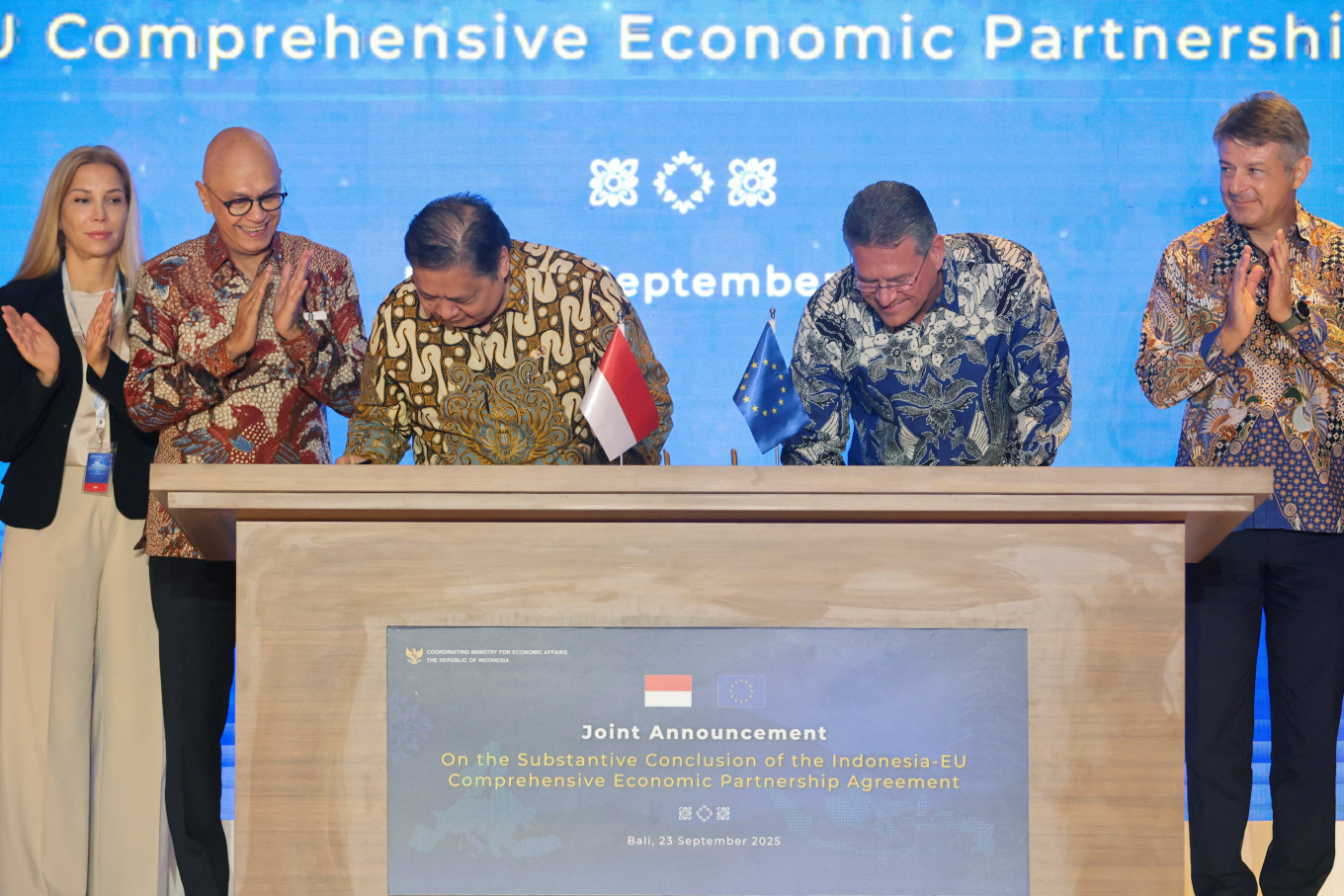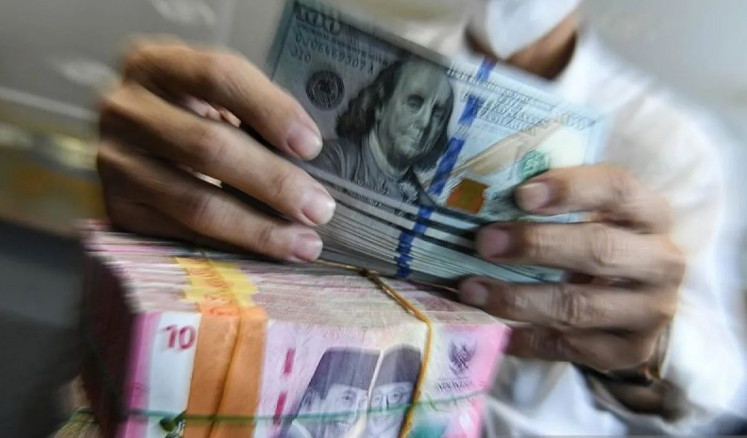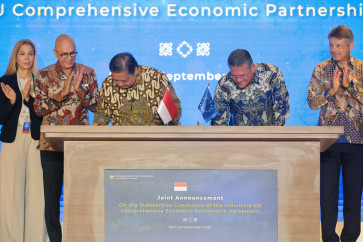Popular Reads
Top Results
Can't find what you're looking for?
View all search resultsPopular Reads
Top Results
Can't find what you're looking for?
View all search resultsI-EU CEPA opens door to EU but small businesses will struggle to enter
Change text size
Gift Premium Articles
to Anyone
 Coordinating Economy Minister Airlangga Hartarto and European Commissioner for Trade and Economic Security Maros Sefcovic sign documents on the conclusion of the Indonesia-European Union Comprehensive Economic Partnership Agreement (IEU-CEPA) on Sept. 23 in Nusa Dua, Bali. (REUTERS/Johannes P. Christo)
Coordinating Economy Minister Airlangga Hartarto and European Commissioner for Trade and Economic Security Maros Sefcovic sign documents on the conclusion of the Indonesia-European Union Comprehensive Economic Partnership Agreement (IEU-CEPA) on Sept. 23 in Nusa Dua, Bali. (REUTERS/Johannes P. Christo)
D
uty-free access to the European Union market is supposed to help Indonesian micro, small and medium enterprises (MSMEs), but trade associations doubt it will be a panacea for boosting exports without tackling costs, compliance and capacity.
MSMEs often struggle to scale up production and maintain consistent quality, with many lacking certified processes, said Dewi Meisari, founder of UKMIndonesia.id.
“Quality can vary when output doubles or triples, from 1,000 units a week to 5,000 or 10,000, with many giving up midway, because they can’t meet demand,” she told The Jakarta Post on Tuesday.
UKMIndonesia.id is a community platform launched by the University of Indonesia in 2017 to empower MSMEs by providing guidance on opportunities, licensing and know-how.
Breaking into the European market “added new layers of complexity,” Dewi added, with buyers often probing details like wages, labor conditions and raw material sources.
“What’s important to note is that building relationships with international buyers can take years,” Dewi noted. “One of our members landed a deal in the third year after repeatedly proving consistent product quality at trade fairs.”
Read also: IEU-CEPA to help iron out ‘any’ remaining bilateral trade issues

















